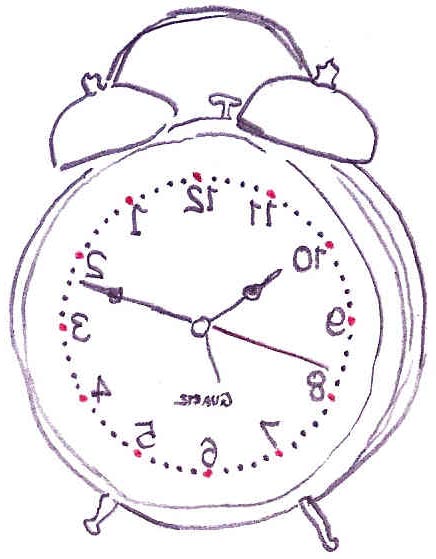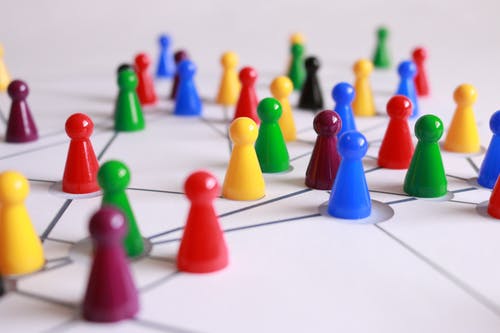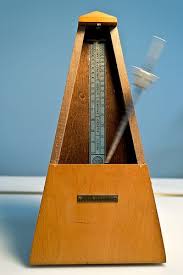
Apr 18, 2021
I’ve seen two situations in the retirement area where people are stuck. One is the transition into retirement when someone holds back from initiating the process. The second is post-retirement when the transition has not worked out very well. The retiree is not happy but doesn’t know how to make retirement better.
First, consider Ray, a successful consultant, whose work is helping key executives in some major US corporations with their business planning. He knows that, if he wants, he can continue working, as he has been for many more years.
Ray has been thinking about retiring for a long time. He feels burdened by the stresses of work more and more, and he has enough money to retire. So why doesn’t he retire? He doesn’t know what he would do with his time. He’s thought about some home projects and travel, but they don’t seem enough. Why give up his exciting work? Retiring to him seems like jumping off a cliff – into an abyss.
Then there’s Eddy, who ran a small but successful publishing firm. He got an offer to buy his business that was too good to turn down. He took the offer. He looked forward to a retirement life of golf, travel, and visiting grandchildren. Eddy’s retirement started out great. He’s now two years into it. He enjoys his activities, but he feels like there’s a hole in his life. He’s not sure how to fill it.
Both Ray and Eddy are stuck and upset with themselves. They want some change but don’t know how to do it. They know that they’re smart and should be able to figure out what’s next. But it hasn’t happened. It feels like a fog has settled over their heads. And they see other less capable people who seem to have figured this all out and are having a great time.
Ray and Eddy have been through many transitions in their pasts, including into new jobs or careers. Some may have been more straightforward than others. Some transitions they did by themselves, others they got some help from teachers or coaches.
Ray and Eddy will remain stuck unless and until they do something different. If they’re not making much progress on their own, then they could get some help from professionals.
In my new profession of retirement coach, I work with people like Eddy and Ray to help with these very issues. My goal is to help make the transition into retirement much easier and result in a higher quality retirement.
Are you stuck in your retirement transition?

Apr 6, 2021
Starting at around age 50 we begin to think not only how old we are, but how much time we have left. Our life expectancies from birth are to age 75-80, which translates to an age 65 retirement length of 10– 15 years. However, if you’ve made it into your mid 60’s, your average life expectancy will actually be into your late 80’s. So, you could have 20 – 25 years of retirement.
Even that’s not the whole story. If you’re managing your health reasonably well and have the resources to get good healthcare, then your life expectancy is even greater, and your retirement could be even longer.
If you could count on having all of that time available, with mental clarity and good health, then decisions you make about what you want to do with your time would be far easier. But there is no warranty stamp. There’s substantial uncertainty. I’ve witnessed some friends dying and others recovering, both unexpectedly.
I retired late, because I was enjoying my work and didn’t want to quit. But I eventually did. When I was no longer working full-time, I had to decide how to use my “extra” time. Yes, I had a bucket list comprised primarily of travel destinations. Should I rush through it and travel while I still could, before being overcome by health issues?
That thinking motivated me to plan and do some very nice trips, before Covid-19 limited the possibilities. I realized, however, that I would never complete my list of travel destinations. I hear of new places from fellow travelers, frequently. I’ll never run out. And I want to return to some of my favorites. So I’ve chosen a fast but not desperate pace of travel.
In addition to travel I’ve chosen two long-term retirement activities – starting a new career as a retirement coach and learning cello. I knew that each of these would take considerable time to develop into serious ventures.
- My new retirement coaching career has turned out to be more different from my previous financial planning than I expected. I find that I’m often going out of my comfort zone and learning new skills and bodies of knowledge. It’s challenging. My goal is to have a substantial positive impact on others through the part-time work I do. It’s working.
- I loved listening to cello for decades before I decided to play it. I started my lessons a few years before retirement, knowing that it could take a minimum of 5 years before I would be good enough to play in an ensemble group. I find the learning to be frustrating and joyful. I’ve found out that this is also the experience of other musicians. Playing cello is something significant in my life.
Health issues could slow me down or stop me from continuing to make progress. So far, I’m okay. I love learning and making progress. I hope to continue having a major impact on the lives of others. Each day now is full and rich. I’m spending my time doing things that are important to me.
How much time do you think you have left? How do you plan to use it?

Mar 30, 2021
This is the first of a series of blogs I am writing about Retirement Strategies. My goal for this series is to give you information and ideas to facilitate your transition to a joyful and fulfilling retirement.
Retiring means transitioning from full-time work to something else. For many people that means moving to a life of leisure, if they can afford to do that.
Some workers retire because they want to do something else. Others are forced to leave the workforce by their employer or to deal with health issues for themselves or others. If the time of retiring is your choice, then you might use the criterion of having enough money to last throughout retirement as your triggering event. There are other issues and challenges for you to deal with, particularly those that deal with your activities during retirement.
Most people don’t fully appreciate that their work provides more than an earned income and benefits. When work disappears, here are some of other losses.
- When you leave work, they don’t come with you. That social interaction is gone.
- Structure of your time. Most people in their retirement are excited to have more freedom and flexibility. But many, who are not used to structuring their own time, find it to be challenging when days merge into each other without some kind of routine or focus.
- Work is organized around meeting goals. The sense of achieving them disappears upon retirement unless replaced with something else.
- Are you still a doctor (or lawyer etc.) when you are no longer practicing your profession?
If any of these losses are important to you, then you will want to replace them. Here are some ideas based in part on my own experiences when I retired in 2019.
- You may need to make new friends or activate older relationships. Doing activities that you love together with others is one way to accomplish that. I reached out to others through social media, zoom, and volunteer activites to meet new people and get together with old friends.
- Structure of your time. It is helpful to have some activities in retirement, daily, weekly or whatever. I’ve structured my time via cello lessons and practicing for them, along with a number of regular other activities.
- Having a sense of achievement. If you have some goals in retirement, making substantial progress or finishing them will give you a sense of accomplishment. I have a sense of achievement through building my new retirement coaching career and making progress on my cello.
- One solution is to continue some work into retirement in the same professional area. Another is to create a new identity that will give you the same respect that you had while working. For me I’ve replaced my work identity as a financial planner with an accreditation as a retirement coach.
All of these parts of the retirement transition require some thought and planning.
Do you have some ideas for replacing important features of your work when you retire?

Mar 2, 2021
Some pursuits just don’t work out as intended. The question is what to do next.
I think about Thomas Edison who is said to have had 5,000 – 10,000 failures on the way to improving the light bulb. Before him a light bulb lasted for only several hours. He eventually found a way to make it last a 100 times longer. I can imagine him saying to himself after many of his failures – “Well, okay. Then let’s try this.”
Here’s a recent example of what I tried but didn’t work. I’d been working on a project to expand my network of potential business partners using LinkedIn. I used LinkedIn’s search capability to discover some possible candidates for my network. I reached out to them. But almost everyone ignored my invitations and didn’t connect. I tried again. Same result.
I had two questions to answer. Was the project still worth pursuing? My answer was yes. The follow up question was whether to pivot and find a different approach to achieve the same networking objective or to try to improve the approach I had tried but hadn’t worked. I chose the latter, at least to start with.
I contacted some colleagues who are more proficient with LinkedIn than I am – to get their advice. We reviewed the message that I had been sending out. They said that my invitation to connect was too impersonal and pushy. Why not try a friendlier approach? I changed the message. It worked.
I mention this story to illustrate how important our attitude can be when confronting a challenge. I’ve been noticing lately how frequently things don’t turn out. If so, I pause and think of my action as an experiment that just didn’t work out as intended. So, like Edison, I can say, “Let’s try this again, but in a different way.”
What are some of your recent activities or projects that didn’t work out as you planned? If you think of them as experiments, how does that affect how you feel and what you do?

Feb 23, 2021
My cello teacher Jacqueline Ultan has been telling me recently how important it is to use my metronome when preparing to play music with other musicians. Playing music together means that everyone must play at the same regular pace. The metronome shows me how I’m doing.
When I am playing my cello and seeing the next note on the page, I don’t have time to think about all the mechanics of playing it. For the note to sound right, I must have the correct fingering with my left hand as well as the correct bowing with my right arm. Learning to play a musical instrument means building my muscle memory.
Being concerned about the regularity of playing the notes is another component of playing that I should be concerned about. But the tick/tock of the metronome has driven me crazy in the past. It’s been distracting and has raised my anxiety. My playing has broken down entirely when I’ve used it. My fingering and shifting my positions on the keyboard have fallen apart. In the past, I’ve avoided it whenever possible.
Jacqueline has been telling me that my metronome should be my friend. She has “sweet-talked” me into using it now. I’m coming to understand that my metronome is no more nor less than a measuring tool. It holds me accountable for my pace. It gives me feedback. It shows me what I need to work on.
In some ways a metronome works like a scale that measures weight. If my weight were a concern but I didn’t measure it, then how would I know how I’m doing? If I want to change, I can choose to ignore my measuring tool, but I do so at my own risk. Measuring and change are linked.
What is important enough for you to measure? Do you have a goal you’re trying to reach? How are you measuring progress towards your goal? Who can help/support you and hold you accountable for this?

Feb 16, 2021
For decades in my work as a financial planner, the word “portfolio” meant only one thing – a structured collection of investments. Sometimes called diversification or a balanced investment approach, portfolios have two main features. They help to manage risk – not having all of your eggs in one basket. The variety of investments permits you to take advantage of a wide range of opportunities.
As I’ve described this approach to clients, I’ve warned them to be careful that the components of their portfolio need to be truly different from each other. A lunch comprised solely of four scoops of different flavors of ice cream may be tasty, but it’s not really balanced.
Now that I am a retirement coach, portfolios have a different meaning. Just like in the investment area, portfolios are structured collections but now they contain activities. The advantages are similar. Each component of an activity portfolio can provide both balance in life and opportunities to fulfill a wide range of personal goals.
Executive transition coach George Dow coaches corporate executives as they transition to another job/career or to retirement. He recommends a portfolio approach that includes several categories of activities:
- Learning and self-development. For me this has come from a combination of my work and meeting new people over Zoom.
- Working in the form you want. My retirement coaching is my major focus in this category.
- Giving back. I have some serious volunteer activities that I participate in.
- Healthy living. I eat healthy foods and keep my weight and diabetes under control. I bicycle indoors or outdoors almost daily and do stretching/balancing/weights a couple of times each week. And I sleep more now that I have more time to do that. All of these give me the energy I need to pursue other activities.
- Enjoying personal pursuits and leisure. My most serious leisure activity is my music. I travel when I can, watch cultural events, and get together with family and friends.
I am always juggling – choosing how much time to spend in each category. I find that some of my activities fall into more than one category. For example, my work includes much learning, enjoyment, and I see it as a way of giving back.
I constructed my portfolio of activities only after I had thought about my own values and goals. This portfolio continues to evolve as I proceed down my own unique path.
How can you construct your own effective and efficient portfolio of activities?






